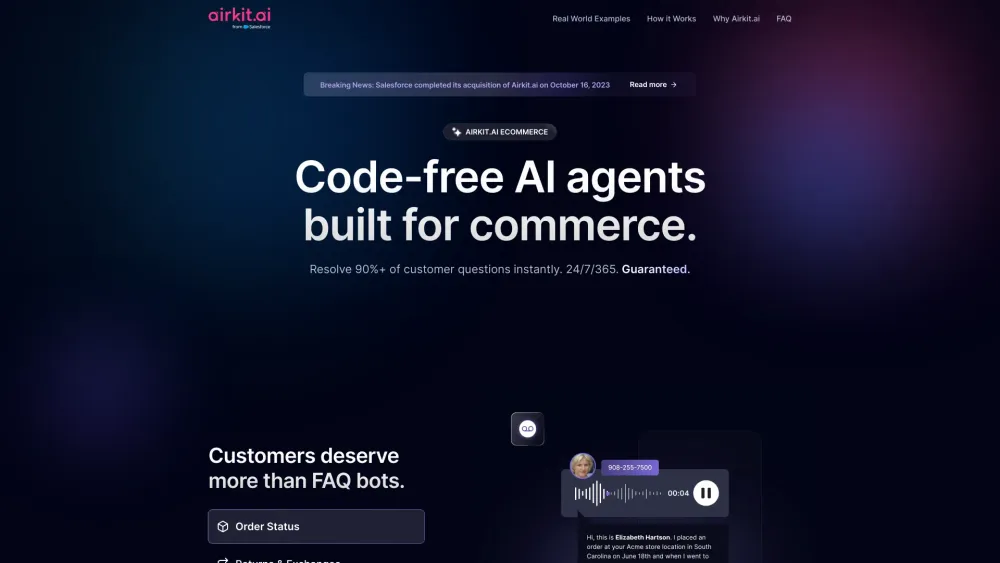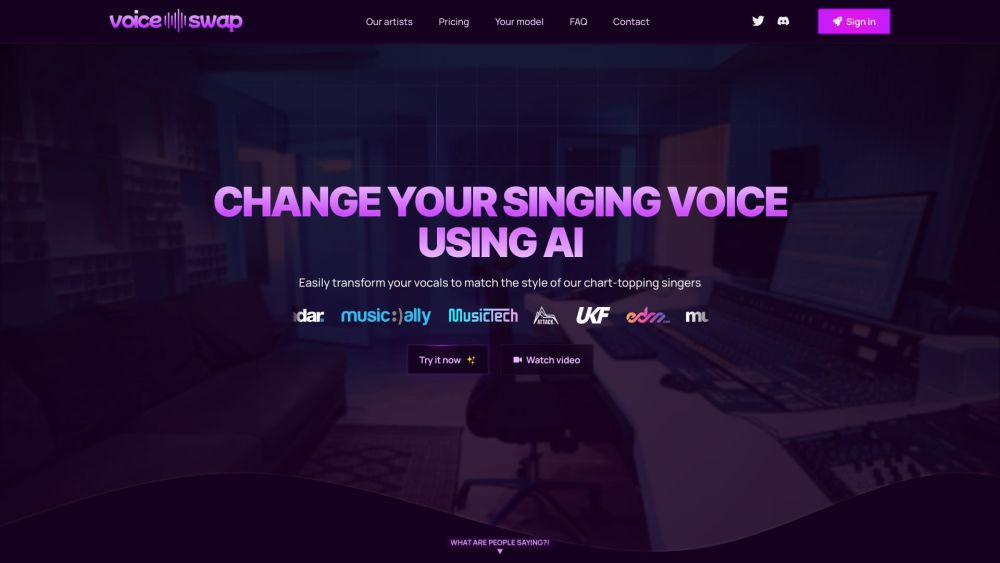Betaworks is tapping into the AI revolution not with yet another language model, but through a suite of innovative agent-type models designed to automate everyday tasks that are often challenging to outline. The firm's latest incubator, "Camp," has trained and funded nine AI agent startups aimed at tackling some of today's more mundane tasks.
The potential applications for these startups are intriguing; however, AI has a reputation for falling short of expectations. Would you be comfortable relying on a newly launched AI to manage your email? How about using it to extract and organize information from a webpage? Would anyone trust an AI to schedule meetings freely?
Building trust in these services is crucial, as with most technologies that alter our behavior. Initially, asking services like MapQuest for directions felt unusual, but over time, GPS navigation became a staple tool. Are AI agents at that transformative stage yet? Betaworks CEO and founder John Borthwick believes they are ready.
“You're touching on a key insight we’ve explored extensively,” he shared. “While agentic AI is still emerging—with challenges like inconsistent success rates—we’re witnessing significant advancements, even just since Camp began.”
As the technology evolves, Borthwick noted that many customers are eager to adopt it in its current form.
“Historically, we’ve observed customers willing to take risks—even with critical tasks—if a product is 'good enough.’ For instance, the original Bill.com, despite its OCR and email scraping flaws, still earned user trust to manage thousands of dollars in transactions because it simplified a daunting process. Over time, through effective interface design and feedback from users, the product became even more reliable,” he explained.
“Currently, most early users of Camp’s products are developers, founders, and early tech adopters—individuals who are typically patient and willing to provide feedback, facilitating a transition to the broader market.”
Betaworks Pushes Forward with Augmentative AI in Latest Camp Cohort
Betaworks Camp is a three-month accelerator where selected companies receive hands-on assistance with their products, strategies, and connections, culminating in a $500,000 check from Betaworks, Mozilla Ventures, Differential Ventures, and Stem AI. These startups will showcase their innovations on demo day, scheduled for May 7.
We got an early look at the lineup, and here are three standout companies:
Twin is revolutionizing task automation through an “action model” that allows users to describe tasks in plain language. Instead of relying on a backend engineer to code a custom script, users can simply articulate tasks like, “Consolidate all today’s resumes into a Dropbox folder and rename them after the applicant, then send me the share link via Slack.” If adjustments are needed, like adding an application date to the file names, users can modify the workflow seamlessly. The goal is to automate the time-consuming 20% of tasks that monopolize 80% of our time, but affordability remains a pivotal question. (Twin declined to provide more details on their model and training methods.)
Skej seeks to alleviate the often frustrating challenge of finding a meeting time for multiple participants. By adding the bot to an email or Slack thread, it reconciles everyone’s schedules and preferences. It checks availabilities, honors specific requests, and determines priority for certain attendees. Those familiar with skilled executive assistants appreciate their irreplaceable value, yet even they might welcome an AI solution that minimizes the back-and-forth inevitable in scheduling.
Jsonify enhances traditional web scraping by extracting data from more complex, unstructured environments. While this has been done before, earlier methods often struggled, especially with poorly coded pages or content hidden behind tabs. Jsonify leverages modern AI models to efficiently analyze and organize data that typical scrapers might overlook. For example, users could search for Airbnb listings and have Jsonify compile that information into an organized table with columns for price, distance, ratings, and hidden fees.
Doesn’t the inherent imprecision in LLMs raise concerns about reliability? “We’ve established robust safeguards and cross-referencing methods,” explained founder Paul Hunkin. “We utilize various models during data processing for validation, and our LLMs are fine-tuned for this specific application, typically achieving over 95% extraction accuracy depending on the situation."
These solutions hold promise for any tech-savvy business. The cohort also features six additional startups, each offering unique capabilities:
- Resolvd AI: Automates cloud workflows, although bespoke integrations may take time to mature.
- Floode: An AI inbox manager that reads emails and identifies important information while preparing responses.
- Extensible AI: Provides diagnostic and logging infrastructure for AI deployment.
- Opponent: A virtual character designed for children's interactive play, raising ethical and legal concerns.
- High Dimensional Research: Offers a framework for web-based AI agents with a pay-as-you-go model, minimizing financial risk for companies experimenting.
- Mbodi: Focuses on generative AI for robotics in areas where training data is limited.
AI agents are poised to play a significant role in the evolving landscape of automated software workflows, but the specific nature of that role is still unfolding. Betaworks is clearly positioning itself at the forefront of this movement, even if some products aren't yet polished for widespread adoption.
Keep an eye on May 7 to see these companies present their innovative solutions!
Correction: This article has been updated to reflect that Paul Hunkin is the founder of Jsonify, not Ananth Manivannan.





